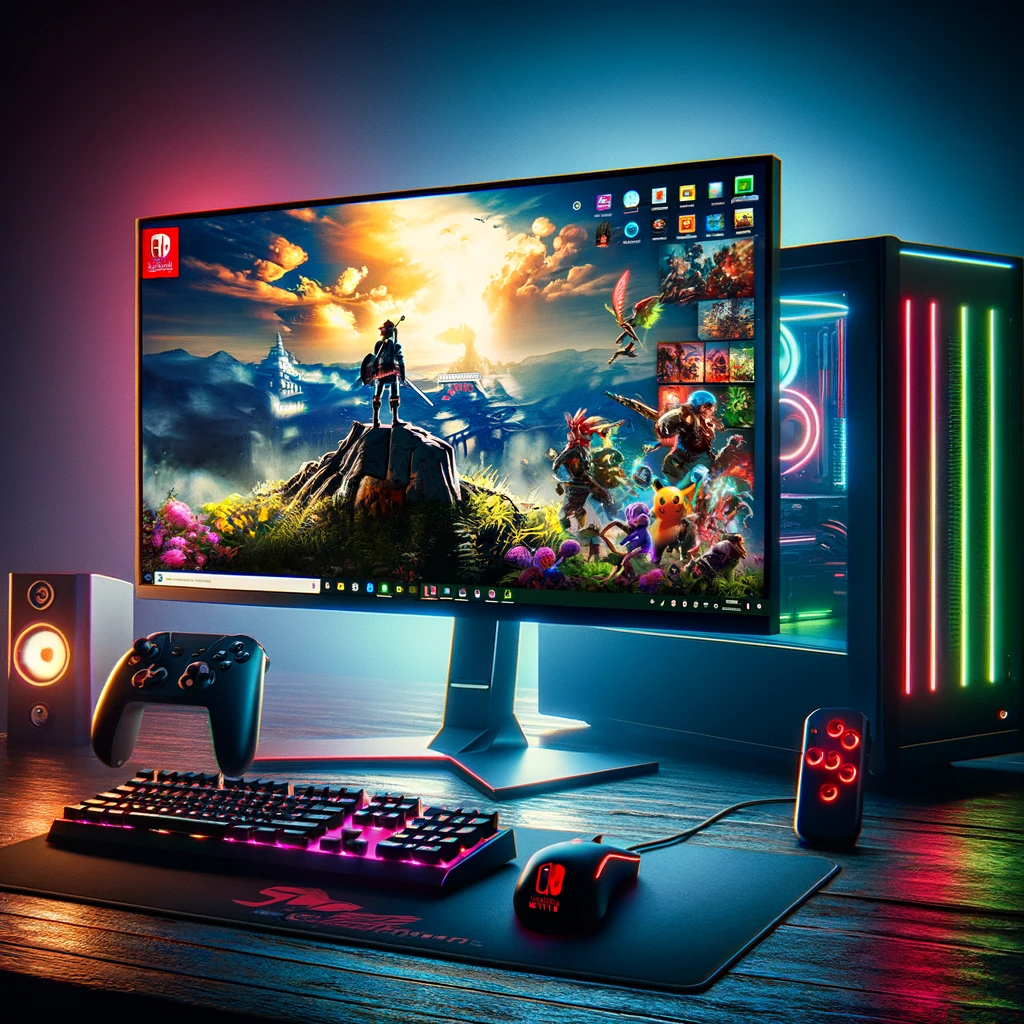The latest builds of the Yuzu emulator, renowned for enabling Nintendo Switch games to be played on PC, have introduced significant enhancements aimed at delivering a smoother gaming experience. Among these advancements is the integration of AMD Fluid Motion Frames (AFMF), a technology recently released by AMD. This addition promises to elevate gameplay fluidity particularly for users with AMD GPUs.
Multi-process architecture enhancements
In a recent progress update, the Yuzu development team announced their transition from a single-process emulator to a multi-process architecture. While this transition is still underway, the team has already implemented various improvements across modules such as GPU and input handling. These enhancements are set to pave the way for a more seamless gaming experience on the emulator.
Universal frame generation support
Yuzu now supports the universal frame generator LFSG 1.0, allowing users to implement frame generation in numerous games. While this feature has shown promise in enhancing perceived framerates, users may encounter graphical artifacts, particularly on larger screens. Nevertheless, the addition of frame generation marks a significant step forward in optimizing gameplay performance within the emulator.
AMD fluid motion frames integration
The introduction of AMD Fluid Motion Frames (AFMF) in Yuzu represents a notable advancement for users with AMD GPUs. By simply editing a configuration file, gamers can leverage AFMF across various rendering APIs including Vulkan, OpenGL, and Direct3D. This technology, officially released by AMD, not only enhances image quality but also delivers substantial performance boosts, particularly at a base framerate of 60FPS.
In titles like *The Legend of Zelda: Tears of the Kingdom*, users may experience frame rates ranging from 170 to 180FPS on hardware configurations such as the Radeon 5600X paired with an NVIDIA RTX 3060 Ti. This remarkable performance improvement underscores the efficacy of AFMF in elevating gameplay fluidity and overall user experience.
The Yuzu team clarifies that AFMF can be utilized even when rendering games with NVIDIA or Intel GPUs, albeit with a slight degradation in performance due to latency introduced by PCIe transmission of frames. However, to fully capitalize on AFMF, the display must be connected to a compatible AMD GPU, allowing for optimal performance and image quality.
Enabling AMD fluid motion frames in Yuzu
For users keen on integrating AMD Fluid Motion Frames into their Yuzu gaming experience, detailed instructions can be found on the official Yuzu blog. By following these guidelines, gamers can unlock the full potential of AFMF, thereby enhancing the visual fidelity and performance of their favorite Nintendo Switch titles played through the emulator.
The latest enhancements to the Yuzu emulator, including multi-process architecture improvements, universal frame generation support, and the integration of AMD Fluid Motion Frames, collectively represent significant strides in optimizing gameplay performance and visual fidelity. With these advancements, Yuzu continues to solidify its position as a leading platform for experiencing Nintendo Switch games on PC.
By embracing cutting-edge technologies such as AFMF, Yuzu empowers gamers to enjoy smoother gameplay experiences while leveraging the hardware capabilities of their AMD GPUs. As development progresses, users can expect further refinements and optimizations, ensuring that Yuzu remains at the forefront of Nintendo Switch emulation on the PC platform.




